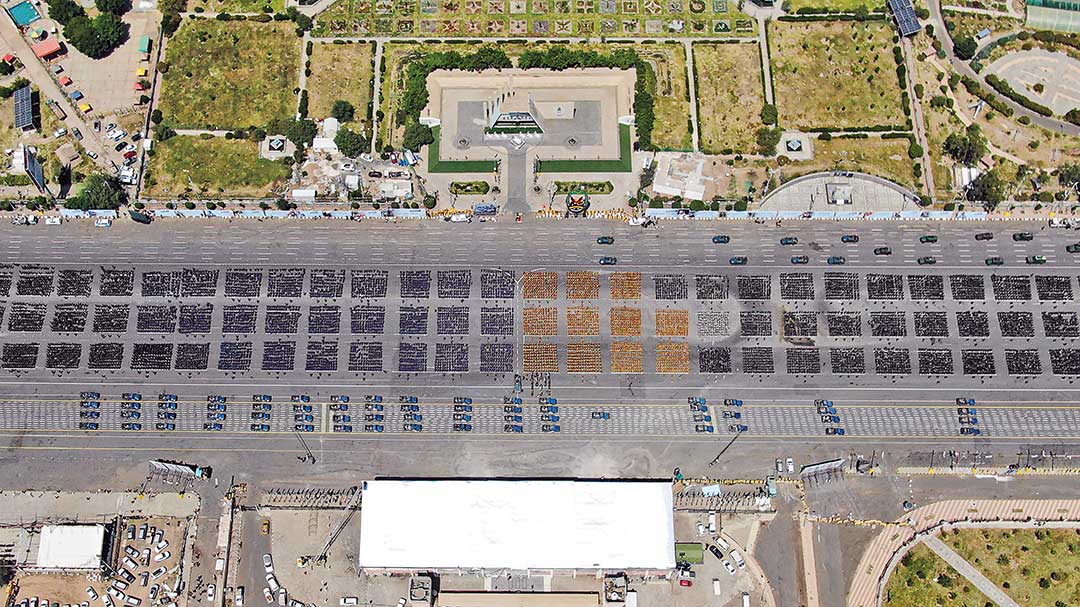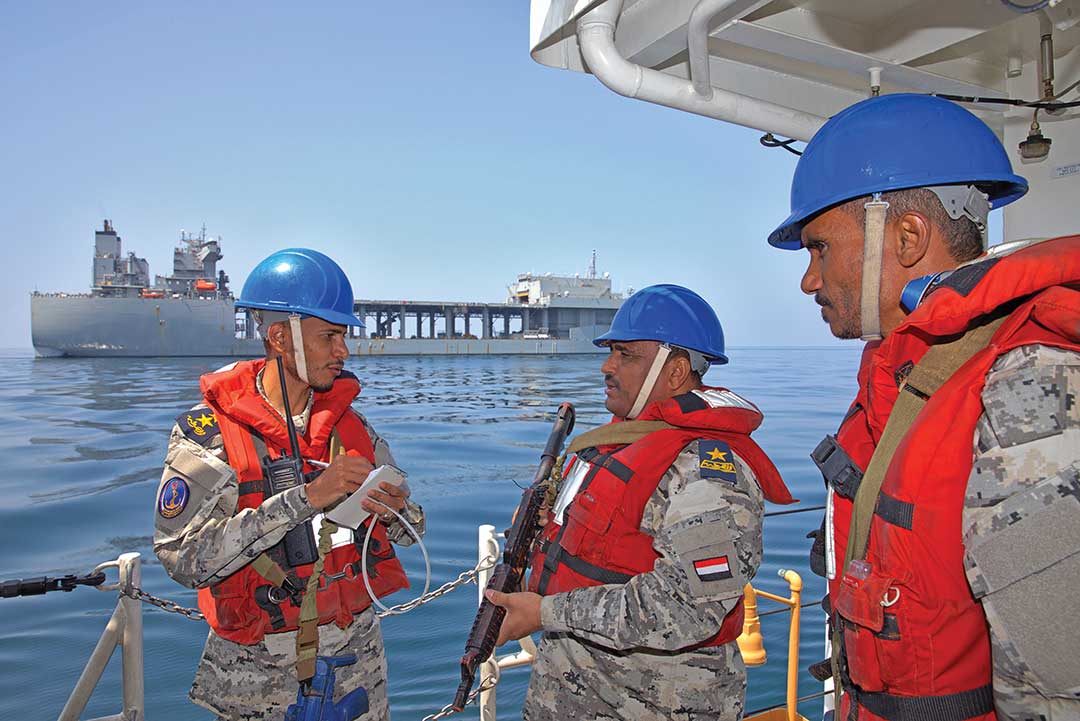Fighting Instability in Yemen
Iranian Misbehavior Represents a Barrier to Peace in the Region
MOAMMAR AL-ERYANI, MINISTER OF INFORMATION, CULTURE AND TOURISM, REPUBLIC OF YEMEN
On July 5, 2023, U.S. Central Command reported it had thwarted an Iranian attempt to seize Bahamas- and Marshall Islands-flagged oil tankers near the Strait of Hormuz. A day later, the U.S. 5th Fleet announced that the Islamic Revolutionary Guard Corps-Navy (IRGC-N) had seized a merchant vessel in international waters near the Arabian Gulf and that the U.S. Navy had deployed ships in response.
These incidents by the IRGC-N in international waters are not the first. Since 2021, Iran has targeted 20 commercial vessels in continuation of a pattern that Iran and its proxies have practiced since the 1979 revolution that created the Islamic Republic.
The escalation came months after the March 1 announcement that the Saudi and Iranian sides had agreed to restore diplomatic relations within two months after a seven-year pause. This agreement was part of relentless efforts made by the leadership of the Kingdom of Saudi Arabia to settle crises, heal the rift, solve outstanding problems among the countries of the region, curb interference in the affairs of Arab countries, and establish healthy relations based on the principle of non-interference, respect for national sovereignty and the pursuit of common interests.
That moment presented an opportunity for the Iranian regime to review its malign behavior, respect the principles of the United Nations Charter and international laws and treaties, and refrain from sponsoring militias and using them to implement destructive policies.

However, after the agreement’s signing, Iran’s conduct remained unchanged. It continued to support militias that spread chaos and terrorism and threaten international interests. Tehran’s actions pose a persistent danger not just to the region, but also to the international community, as it seeks to alter the region’s political, cultural and ideological balance through force.
Iran is determined to export its revolutionary model. It does so by expanding its geographic and cultural influence through support to militias like the Houthis in Yemen to consolidate power internally and externally.
The Islamic Republic, which spends generously on militias loyal to it and finances their malign activities, provides them with money, weapons and combat training. Tehran considers its militias, including the Houthis, closer to it than the average Iranian citizen, who does not believe in its ideology.
Herein lies the danger: Iran works to undermine the stability and independence of regional states while empowering its militias, even if that means doing so atop the ruin and destruction it has caused. This is most evident in Yemen, where a bloody conflict has exacerbated one of the world’s worst humanitarian crises.
In Yemen, people are still paying the price for the Iranian regime’s policy. Its expansionist ambitions and blatant interference in Yemen’s internal affairs reached a climax with the Houthi militia’s coup against the state in 2014, aided by Iranian support, financing and planning.
Iran continues to play a major role in the continued smuggling of weapons and drugs to the Houthis in violation of U.N. Security Council Resolution 2216, disrupting initiatives and efforts made by neighboring countries led by Saudi Arabia and the international community to de-escalate and restore the U.N.-sponsored truce, and standing as a stumbling block to efforts to end the war and bring about a comprehensive, just and sustainable peace. Additionally, Iran disregards the heavy toll of losses and the economic and humanitarian suffering Yemenis experience in the war triggered by the coup.

Yemen’s experience of Iranian influence since the emergence of the Houthis as an armed militia in 2003 is strong evidence of the damage wrought by four decades of Iranian expansionist policies and hegemonic ambitions in the region.
Anyone who visited Sanaa, the capital of Yemen, before it fell into the hands of the Houthis and compares that to the city of today will understand the meaning of “exporting the Iranian revolution.” Today, the capital displays billboards in homage to Iranian leaders.
Furthermore, while preparations are being made for the closure of the Yemen-American Language Institute, which specializes in teaching English, universities and institutes have been pressured to specialize in Persian language education. Houthis have also canceled the commemoration of patriotic events in deference to Iran.
With that in mind, the international community, led by the permanent members of the U.N. Security Council, should not permit the malign behavior of the Iranian regime to go unchecked. In addition, the Yemeni Coast Guard requires support to improve its capability to protect Yemeni waters and join multinational maritime missions to protect international waters near Yemen.
It is time for the international community to move decisively to maintain international peace and security. This must be done to confront the threat posed by Tehran and its militias — foremost among them the Houthis — and the systematic instability that it promotes, for which countries and peoples of the region pay a heavy price.


Comments are closed.